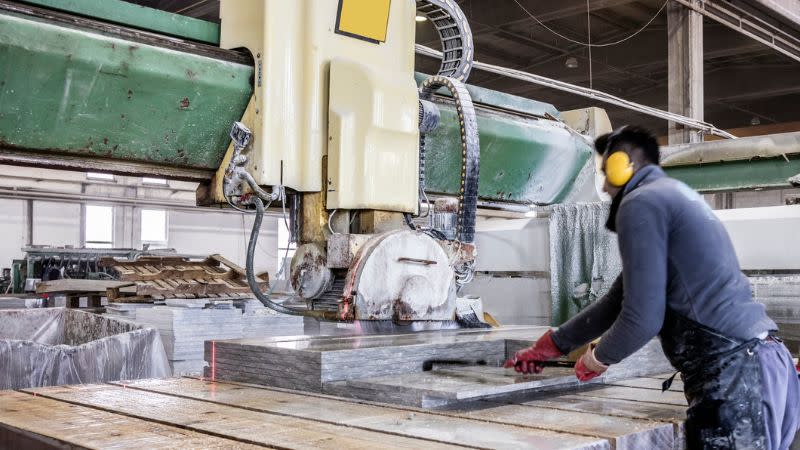Developers Urged to Act on Manufactured Stone

The development industry is on notice with a new report finding nearly one in four stone workers could have silicosis or other dust related diseases.
Given virtually all residential developments, among others, require benchtops, the findings are more than certain to have ramifications for the sector
And the number of new cases of the incurable disease was expected to rise, particularly in young men, according to the report, published in the BMJ recently, strengthening calls to ban manufactured stone.
The report’s release coincided with the establishment of a new national disease registry, one of the key recommendations of the National Dust Diseases Taskforce.
The silicosis research screened 541 workers. The results showed 86.2 per cent of participants were exposed to dry processing of stone and 28.2 per cent were diagnosed with silicosis, they were aged between 34 to 50 years.
In an industry struggling to attract workers and overcome lingering supply chain issues, the future of the manufactured product was far from set in stone.

in the year all health and safety ministers in states and territories agreed to regulate silica exposure and investigate a ban on engineered stone benchtops.
This would impact not only high-end residential developments but kitchens and workspaces in offices to a lesser extent.
The first case of silicosis in the benchtop industry was reported in 2015 and the use of artificial stone has grown at a rapid rate since it flooded the market in the 1990’s.
However, Cole Health listed many benchtop alternatives for developers and designers to choose including stainless steel, timber, laminate, polished concrete, natural and solid surface which wasmade with a blend of resin minerals and pigments.
Another product gaining popularity was porcelain, which was recently added to major benchtop suppliers’ lines, including Ceaserstone.
Lung Foundation Australia senior manager Elizabeth Early said the report was a vital piece of work that highlighted how widespread, dangerous and under-diagnosed silicosis was in Australia.
“The focus must now be upon commencing an importation ban on the use of engineered stone products, and ensuring there is nationally consistent legislation for the monitoring and health surveillance of workers exposed to silica dust across all affected industries.
“Legislation introduced into Federal Parliament this week to establish a national registry for mandatory reporting of silicosis and all occupational respiratory diseases is an important first step.”

Federal assistant minister for health and aged care Ged Kearney said silicosis had a devastating impact on workers and their loved ones.
“This is an entirely preventable illness, and all too often leads to entirely preventable deaths,” Kearney said.
“The new national registry is another important step forward to support early detection of new cases and identify workplaces and industries that require greater scrutiny.”
The Australian Workers’ Union has renewed its long-standing call to ban the use of all engineered stone last month.
AWU National Secretary Dan Walton says there is no time to waste in implementing a ban.
“Unless urgent action is taken now, we can expect to see a massive surge in silicosis cases in the coming years and decades,” Walton said.
“The Federal government can very easily avoid that right now by banning the use of all engineered stone products. It’s the right thing to do and it will save lives.”















